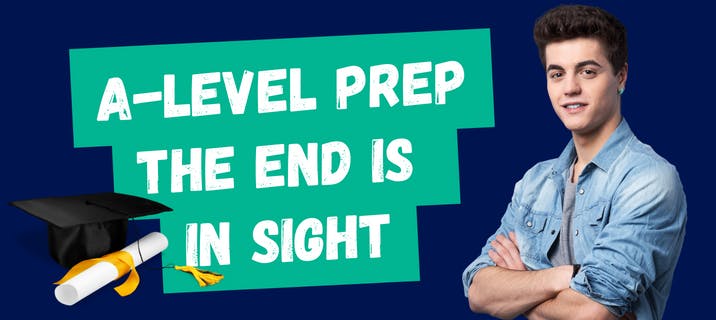If you’re wondering how to pass GCSE English or more specifically, how to pass English Literature GCSE, this guide is for you. Whether you're aiming for a grade 4 to meet college entry requirements or chasing a top grade 9, success comes down to preparation, analysis, and practice.
In this blog, we break down the structure of English Literature Paper 1 and Paper 2, explore past paper usage (including AQA GCSE English Literature past papers and Edexcel GCSE English Literature past papers), and share proven tips from top students and teachers alike.
If you're looking for personalised support, explore expert-led GCSE tuition on LessonWise to get help from experienced English tutors.
Understand the Exam Structure
GCSE English Literature Paper 1
This paper focuses on:
- Shakespeare
- 19th-century novels
For AQA, Paper 1 typically includes one question on each of the two set texts you’ve studied. You will need to explore characters, themes, and the writer's techniques, backed up by quotations.
Tips:
- Memorise key quotes with context.
- Understand the historical background of the texts.
- Practice planning essays under timed conditions.
Looking for structure breakdowns and tips for GCSE English in general? Read our blog on What is a pass in GCSE.
GCSE English Literature Paper 2
This paper covers:
- Modern texts (e.g., "An Inspector Calls")
- Poetry anthology
- Unseen poetry
This paper tests your ability to compare poems, analyse unseen poems, and write critical responses to drama or prose.
Tips:
- Practice unseen poem analysis weekly.
- Create comparison grids for anthology poems.
- Learn poetic techniques like enjambment, caesura, and iambic pentameter.
Want help tackling Paper 2? Sign up for guidance with an expert English tutor on LessonWise.
Use Past Papers Effectively
Using AQA GCSE English Literature past papers and Edexcel GCSE English Literature past papers is crucial for exam success. Past papers help you:
- Get familiar with question styles.
- Time your responses.
- Assess your progress.
Use mark schemes to understand what examiners look for. You’ll begin to spot patterns in the kinds of quotes and points that score highly.
Want help going through past papers? LessonWise is here to help, simply contact us now.
Know Your Set Texts Inside Out
To succeed in English Literature Paper 1 and Paper 2, you need more than a surface-level understanding of your texts. Here’s what to focus on:
- Themes: Power, conflict, gender, etc.
- Character development: How characters evolve.
- Context: The time period and author's intent.
- Language and structure: How literary techniques enhance meaning.
Create revision cards with quotes, context, and key themes. Some students even use color-coded mind maps or storyboards.
Need book suggestions? Check out our blog on the Best Revision Books for GCSE.
How to Write High-Scoring Essays
Here’s a framework to follow:
- Introduction: Briefly state your argument.
- Main Paragraphs (PEEL): Point, Evidence, Explanation, Link.
- Conclusion: Summarise your main points with a final thought.
Practice planning essays before writing them. Use quotes fluently and embed them within your analysis. Always link back to the question.
Need writing feedback? You can connect with a tutor on LessonWise or contact us directly.
Final Revision Tips
1. Build a Study Schedule
- Week 1: Review Shakespeare and 19th-century novel
- Week 2: Review modern texts and poetry anthology
- Week 3: Focus on unseen poetry and mock papers
- Week 4: Full exam practice and feedback
2. Use Online Resources
Platforms like BBC Bitesize provide excellent summaries and sample questions. Flashcards, summary videos, and practice quizzes also help with retention.
3. Practice with a Tutor
A qualified tutor can help pinpoint your weaknesses and offer targeted support, especially for essay technique and quote analysis. Sign up today to start improving with LessonWise.
Frequently Asked Questions (FAQs)
What’s the best way to pass GCSE English Literature?
The best way to pass is to know your set texts well, practise essay writing regularly, and use past papers from AQA and Edexcel to familiarise yourself with the exam format. For extra support, consider LessonWise GCSE English tuition.
How do I prepare for English Literature Paper 1?
Focus on analysing your Shakespeare and 19th-century novel texts. Create detailed character/theme revision notes, practise essays, and use AQA GCSE English Literature past papers to check your understanding.
How do I revise for English Literature Paper 2?
Review your modern text and poetry anthology in detail. Practise unseen poetry analysis and compare poems regularly. Use the structure of past papers to simulate real exams.
Where can I find past papers for AQA and Edexcel GCSE English Literature?
Both are available on the official exam board websites. You can also work through them with a tutor on LessonWise for personalised support.
What’s the difference between English Language and English Literature GCSE?
English Language focuses on reading comprehension and writing skills, while English Literature explores novels, plays, and poetry. Learn more in our blog: How to Pass English Language GCSE.
Which English GCSE do I need to pass?
Most colleges require at least a grade 4 in English Language. However, passing English Literature is also valuable and can improve your overall English skills. Find help via LessonWise tutors.

